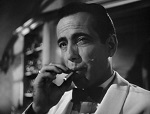|
pkd3001 posted:I mentioned this in another post, but Hannah Arendt, was similar to Orwell, where they both seem to recognize both political extremes have major flaws. This might be a tangent, but where are the centrists in America anymore. It's like I have to choose between the "Tea Party," who are sometimes just apologists for corporations, and their greedy ways, and "progressives" who don't seem to recognize that overall a free market works better than a planned economy. Camus and Orwell maybe were more on the left, but they were no Marxists, which is nice. Oh, and by the way, just to let Tea Party members know, President Obama is not a Marxist, I have friends who are Marxists, and he is not a Marxist. Sorry, this is kind of tangent, but it must be said! I hope your not a Tea Party member, also I think everyone who's ever been near a college has 'Marxist friends'. I find this puzzling; the more I read about history and the more knowledge I gain about human nature, the firmer my support for liberal democracy becomes. In the same vein, I've noticed that Something Awful has a disproportionately leftist membership - the Games forum even has a thread that involves nothing but (uncritically) applying Critical Theory to the video games industry. It is an interesting thread from an intellectual point of view, and the people posting there obviously know their stuff like the latter-day Adornos they are, but at the same time it makes for a frustrating read because they look at the world through a very narrow, dogmatic prism. And I think this has been symptomatic of left-wing intellectualism since at least the days of Stalin. That's why I admire someone like Orwell who was very principled about his (socialist) beliefs, but at the same time didn't allow the purely theoretical to become omnipotent at the expense of compassion and the human element. No, I'm not a Tea Party member. I'm actually not American.
|
|
|
|

|
| # ? May 31, 2024 17:58 |
|
Critical theory is not necessarily narrow and dogmatic; it's less a frame for viewing the world than a tool for peeling back the surface and trying to understand the broader implications of our society and culture. Orwell was very fond of the method himself, as evidenced by his detailed deconstruction of boy's school stories, roughly equivalent to comic books today, in the following essay: http://www.george-orwell.org/Boys'_Weeklies_and_Frank_Richards's_Reply/0.html Orwell was actually a pioneer of cultural studies, and much of his work considers the impact of the seemingly mundane on our lives.
|
|
|
|
WoG posted:What are you talking about? Aside from some very fringe, voiceless parties, everyone takes a free market economy as a given. Given how the whole spectrum has shifted rightward over the past few decades, I don't know how you want to define 'centrist', but both major parties fall in a tight, centrist window. The tea party may have started making some waves in the past couple years, but the overall range of acceptable, electable opinion is still very narrow. There is not true, there are corporations out there who are not greedy. To generalize and say it is all corporations is not true. Also I studied history as an undergrad and communism has been a terribly greedy society, and violent with the purges, and the "cooking of the books," for greed. Also I don't think it is given at all, because I have friends who are Marxists and are really critical of the free market. I hear my friends espouse beliefs on planned economies all the time, but I am unsure of how they will work. All systems people live under will have problems. So right back at you buddy, what are you talking about?
|
|
|
|
Phlegmish posted:I think everyone who's ever been near a college has 'Marxist friends'. I find this puzzling; the more I read about history and the more knowledge I gain about human nature, the firmer my support for liberal democracy becomes. In the same vein, I've noticed that Something Awful has a disproportionately leftist membership - the Games forum even has a thread that involves nothing but (uncritically) applying Critical Theory to the video games industry. It is an interesting thread from an intellectual point of view, and the people posting there obviously know their stuff like the latter-day Adornos they are, but at the same time it makes for a frustrating read because they look at the world through a very narrow, dogmatic prism. And I think this has been symptomatic of left-wing intellectualism since at least the days of Stalin. That's why I admire someone like Orwell who was very principled about his (socialist) beliefs, but at the same time didn't allow the purely theoretical to become omnipotent at the expense of compassion and the human element. Cool, I like that. I don't play video games, so I don't visit that forum. I have friends who are really dogmatic and your right they are well read in there "own" area. The problem is often they are only well read in the areas that they already agree with, so they don't really know the full argument. To really know an argument I think one has to be able to "principle of charity" the other side of the argument, and not straw man the other side. Many people don't even seem interested in what the other side argument is. Most people don't really seem capable of this, for whatever reason, likely it is because I think our beliefs get tied to our egos and we don't want to be wrong. I'm an American also, nice answer. 
|
|
|
|
PatMarshall posted:Critical theory is not necessarily narrow and dogmatic; it's less a frame for viewing the world than a tool for peeling back the surface and trying to understand the broader implications of our society and culture. Orwell was very fond of the method himself, as evidenced by his detailed deconstruction of boy's school stories, roughly equivalent to comic books today, in the following essay: http://www.george-orwell.org/Boys'_Weeklies_and_Frank_Richards's_Reply/0.html Thanks for the link. His style is indeed quite Frankfurter Schule-like, but seems to be more accessible, which is always appreciated. I find Adorno to be nigh unreadable at times. Will have to read up on some of Orwell's essays, and I still have to find Animal Farm and 1984.
|
|
|
|
pkd3001 posted:Cool, I like that. I don't play video games, so I don't visit that forum. I have friends who are really dogmatic and your right they are well read in there "own" area. The problem is often they are only well read in the areas that they already agree with, so they don't really know the full argument. To really know an argument I think one has to be able to "principle of charity" the other side of the argument, and not straw man the other side. Many people don't even seem interested in what the other side argument is. Most people don't really seem capable of this, for whatever reason, likely it is because I think our beliefs get tied to our egos and we don't want to be wrong. I'm an American also, nice answer. What it ultimately boils down to with all forms of Marxism, whether it is orthodox/economic marxism, cultural marxism or even only tangentially related schools of thought like poststructuralism, is that they think they are the only ones who truly understand the world. If you disagree with their analyses and/or the conclusions they reach, you either simply do not understand the subject (and are therefore part of the unenlightened masses that are burdened with a 'false consciousness') or you are trying to stop the oppressed subjects from being emancipated because you are blinded by ideology. You see, their point of view is simply the objective truth, lucid, cold and hard, while your point of view is merely 'ideology', a necessary façade for the dominant capitalist system. This is exactly what renders these revolutionary ideas so attractive to people in their late teens/early twenties. They are a part of society, but they are also able to look at society from the outside, they understand the true nature of society, and believe they are the only ones blessed with this gift. Note how this premise automatically and invariably invalidates all criticism of Marxist-inspired ideas, which helps to explain their enduring nature despite the complete and utter failure of every attempt to find a superior alternative to the liberal democratic system of free market/representative democracy since the beginning of the Industrial Revolution.
|
|
|
|
Because of the recommendation thread, Nixonland (Rick Perlstein). I'm pretty decently versed on the all-around nuttiness of the U.S. of the times as I research segregated high school sports and have read enough local accounts and a couple of books on events. Nothing shocks me from the era, but I still find myself muttering "loving hell" every few pages of Nixonland.
|
|
|
|
Phlegmish posted:What it ultimately boils down to with all forms of Marxism, whether it is orthodox/economic marxism, cultural marxism or even only tangentially related schools of thought like poststructuralism, is that they think they are the only ones who truly understand the world. If you disagree with their analyses and/or the conclusions they reach, you either simply do not understand the subject (and are therefore part of the unenlightened masses that are burdened with a 'false consciousness') or you are trying to stop the oppressed subjects from being emancipated because you are blinded by ideology. You see, their point of view is simply the objective truth, lucid, cold and hard, while your point of view is merely 'ideology', a necessary façade for the dominant capitalist system. This is exactly what renders these revolutionary ideas so attractive to people in their late teens/early twenties. They are a part of society, but they are also able to look at society from the outside, they understand the true nature of society, and believe they are the only ones blessed with this gift. Note how this premise automatically and invariably invalidates all criticism of Marxist-inspired ideas, which helps to explain their enduring nature despite the complete and utter failure of every attempt to find a superior alternative to the liberal democratic system of free market/representative democracy since the beginning of the Industrial Revolution. Yeah, man, that is really good analysis. My friend is really nice guy, but when I disagree with him he accuses me of not "getting him." I mean I do get him, I just don't agree with him. With the "false consciousness" concept, I don't understand how Marxists, overcome the "false consciousness," themselves? How did they see through the all the b.s., if "false consciousness," completely determines us? Also I know "tone" doesn't prove or disprove an argument, but many of the Marxists, I have talked to are really closed minded and dogmatic. They are kind of rude, and rudeness does nothing to convince me of your argument. Ironically so are libertarians, it is like both extremes are sort of acting like religious fundamentalists. Atheists often act like close minded religious fundamentalists also, which is sadly ironic, in another point. I have gotten way off target here, from the original post, but I thought I would say this anyways. Lastly, Karl Popper, said Marxism is not falsifiable just like psychoanalysis. I think this a good criticism, because although it has caused utter horror in it's past, we can't say it is wrong because there is no way to falsify it. You have a good point though. When I was younger I was sort of a quasi Marxist, but as I got older and more and more bad experiences, this notion that the revolution was coming and we were just waiting on freedom to come just eventually went away. I think we can make the world better, but I don't think the revolution is ever coming. Thanks, for chatting. 
|
|
|
|
I had posted a couple of days ago that I was starting On the Road, but then I picked up and started reading Jonathan Safran Foer's Extremely Loud & Incredibly Close. Fifty pages in, it's amazing. I'm in love with his writing style and the narrator. Kerouac will wait.
|
|
|
|
pkd3001 posted:There is not true, there are corporations out there who are not greedy. To generalize and say it is all corporations is not true. Also I studied history as an undergrad and communism has been a terribly greedy society, and violent with the purges, and the "cooking of the books," for greed. Also I don't think it is given at all, because I have friends who are Marxists and are really critical of the free market. I hear my friends espouse beliefs on planned economies all the time, but I am unsure of how they will work. All systems people live under will have problems. So right back at you buddy, what are you talking about? Sorry, I thought you were talking about viable political groups, not a couple of your friends. (Obviously, I can't speak to what a few people I've never met talk about.) Of course there are academics and historians and economists and cultural theorists who discuss planned economies in a theoretical sense, or even espouse them, but no party with even a chance in hell of hitting matching funds, much less putting people in office, would dare advance it as an issue. I think you're using 'greedy' in a subjective, pejorative sense, while I'm using it to refer to the basic motivator underlying free market capitalism. The shortest explanation of F.M.C. being that each actor--individual or corporation--acts strictly in their own self interest to maximize profit, with the net effect creating a stable equilibrium and maximizing efficiency, 'greed' isn't a character flaw, it's simply the mode of participation. I'm still not sure why you think a centrist position is nowhere to be found in America. Politics may seem to have become cripplingly partisan of late, but that may just be confirmation bias. What's clear is that neither of the fringe groups you describe have any political power whatsoever. In fact, many would argue it's to America's disadvantage that it's become so narrowly centrist. Listen, I'm sorry it upsets you that some of your friends can discuss marxism without choking up over what a bad man Stalin was, and yes, I'm sure their armchair theorizing is quite tiresome, but I think when you complain of reasonable positions being nonexistent "in America", you really mean "on your friend's couch", and I'll bet even they still vote democrat (the Democratic Party has >72 million registered voters; Communist Party USA has ~2500). Phlegmish posted:What it ultimately boils down to with all forms of Marxism, whether it is orthodox/economic marxism, cultural marxism or even only tangentially related schools of thought like poststructuralism, is that they think they are the only ones who truly understand the world...
|
|
|
|
WoG posted:I think marxist theory is more structuralist than post-structuralist, but either way, yeah, they sure are mean. Uh, yes, that's why I described poststructuralism as 'an only tangentially related school of thought'. It's literally in the part of my post that you quoted.
|
|
|
|
Phlegmish posted:Uh, yes, that's why I described poststructuralism as 'an only tangentially related school of thought'. It's literally in the part of my post that you quoted.
|
|
|
|
WoG posted:Sorry, didn't realize we meant 'related' in the six-degrees-of-kevin-bacon sense. No problem, not all of us have a vocabulary extensive enough to know what words like 'tangentially' or 'only' mean. And gently caress it, now I've become caught up in the Something Awful cycle of endless snarky remarks triggered by something inconsequential.
|
|
|
|
Phlegmish posted:No problem, not all of us have a vocabulary extensive enough to know what words like 'tangentially' or 'only' mean. Hey, yeah, that is what the internet is for, being rude, having no consequences for your rudeness, and then giving your opinion in a rude fashion also. Isn't being anonymous great?
|
|
|
|
WoG posted:Sorry, I thought you were talking about viable political groups, not a couple of your friends. (Obviously, I can't speak to what a few people I've never met talk about.) Of course there are academics and historians and economists and cultural theorists who discuss planned economies in a theoretical sense, or even espouse them, but no party with even a chance in hell of hitting matching funds, much less putting people in office, would dare advance it as an issue. You know nothing about me, so don't assume you know where I get my information from. Also they should get choked up, when they read about Stalin, unless of course you don't get choked up at Hitler either.
|
|
|
|
This started as a discussion of Orwell, not the ethics of espousing Marxism in a post-Stalin world. True, Orwell was disgusted by Stalin and his fellow traveler apologists, but he also took the basic tenets of Marxism as true, or at least preferable to fascism; which in his view was the inevitable endpoint of capitalist society. While we are inclined to dismiss such ideas today in light of the collapse of the Soviet Union and the domination of the world by market driven democracies, in the years leading up to and following WW2 this position made a lot of sense. Liberal Democracy was seen by Orwell as a failed sham; it had collapsed in Germany and Italy as well as in many countries in eastern Europe and been replaced with a nasty brand of populism and power worship. The horrors of Stalin's USSR were not so much a consequence of the errors and inefficiency of a directed economy, although they played a role, as the result of Stalin's paranoia, ruthless pursuit of power, and a newly resurgent Russian nationalism. Of course, Stalin's persecution of the peasantry was driven to some extent by ideology, but to reject Marxism entirely on these grounds would require us to dismiss democracy as well on the strength of Robespierre's Terror.
|
|
|
|
Agreed. This is not really the place for such a discussion, as interesting as it is. I've almost finished Max Havelaar. This book strongly reminds me of a Dutch version of Harriet Beecher Stowe's Uncle Tom's Cabin - there is a slightly paternalistic tinge to it, but in a very benevolent way. Overall a worthwhile read, though it can get a little long-winded at times. However, people who are bothered by this should generally stay away from 19th-century literature.
|
|
|
|
Just to chime in here with a few book recommendations that may be relevant to the discussion. I'm a fan of G. K Chesterton, and one of his lesser known books, An Outline of Sanity, is a thought-provoking argument for distributism, which was a cool new idea at the beginning of the twentieth century. It's refreshing I have to say - there's a grim lack of imagination behind the capitalism versus socialism debate. There are many deep flaws in a free market society: why not put some new ideas on the table to overcome them, rather than just lazily picking up Marx's broken ideas as the default revolutionary position? Distributism is the idea that free trade is best when the means of production are spread as equally as possible throughout the population as privately held property. Everyone likes local businesses run by normal people with common sense. Edicts coming from head office inevitably alienate and degrade employees. It doesn't much matter if that head office is run by profit-hungry shareholder or by faceless government bureaucrats. Gigantism is the problem, as is the excessive specialisation of labour. The point is developed further by the economist E. F Schumacher, who introduced the idea of human-scaled economics and appropriate technology, with a particular focus on developong economies. He develops these themes succinctly in Small is Beautiful and Good Work Now, for saying all this, I'm not trying to claim that distributism has all the answers, or even that it's workable in the modern world. I'm just trying to point towards a certain body of literature that approachers society and economics from a fresh perspective rather than as an us-versus-them pissing contest.
|
|
|
|
I'm currently reading Endgame pt 1 by Derrick Jensen. In the vein of political topics it is about how civilization is inherently unsustainable and can only lead to collapse. Its a good read and one I personally agree with to a large extent. The second book of the set deals with the "what can we do" aspect of the issue. I really like in the book that he is not so attacking with the issue, he states his beliefs and provides facts and lets it at that. It is a refreshing take from many activist books Ive read that play out like the author is screaming unsupported hypothetical ideas at you.
|
|
|
|
This motherfucking tome: The book is 1.4kg apparently, so by my calculations so far I have read 62 grams of it.
|
|
|
|
That is a loving tome! How have you found the first 62 grams of it? Any good?
|
|
|
|
I finally picked up Blood Meridian since everyone has raved about it. It's making me feel uncultured though, I like quotation marks. Right now its been hard to get into, hopefully once he joins the Judge it will pick up.
|
|
|
|
Hedrigall posted:This motherfucking tome: Got mine from Amazon today. Started reading it after I mowed the lawn.
|
|
|
|
I've got some catching up to do, I just started book 3 (part 1). These things remind me of TV soaps - not great writing, acting is a bit dodgy, but addictive all the same once you get into it.
|
|
|
|
Hedrigall posted:This motherfucking tome: I know exactly how you feel. I'm reading Tolstoi's War And Peace. It's pretty much what you would expect from a 19th-century classic: beautifully written but long-winded.
|
|
|
|
I just started "Twilight Of The Gods" by the infamous Erich von Daniken. From what I hear this guy is refuted by most scientists but a lot of the stuff in his book makes some sort of sense.
|
|
|
|
I finally decided to get some culture so in my insomnia I'm starting The Picture of Dorian Gray
LionYeti fucked around with this message at 09:37 on Jul 17, 2011 |
|
|
|
Still working on The Corrections by Franzen. I think I may be too dumb for it.
|
|
|
|
I've only just started both Lolita and Arsène Lupin, Gentleman Burglar, but I'm loving them so far.
|
|
|
|
Started Rabelais' Gargantua & Pantagruel. It's awesome and funnier than you'd think something written by a monk over 500 years ago would be.
|
|
|
|
Just began Memories of the Future by Sigizmund Krzhizanovsky... best I can describe it is surrealist or magical realist Russian. Pretty great so far, in the tradition of Kafka/Calvino/Borges. I began and completed Antwerp by Roberto Bolano yesterday. Fascinating little read - kind of like 'gestural" writing, where you read quick bits and pieces that give you a general idea of what's happening, without having all kinds of flowery language in the way... I felt like I was watching a movie while I was reading, if that makes any sense? Guitarchitect fucked around with this message at 16:10 on Jul 19, 2011 |
|
|
|
I just began Game of Thrones and I also am treading my way through An Object of Beauty and then I'll read Consider Phlebas. I have a massive intra-genre backlog to get through.
|
|
|
|
I've been trying to work my way through an assortment of Latin American nobel prize winning authors. So far I have read 100 Years of Solitude from Columbia and just finished Feast of the Goat from Peru. Now I'm moving on to Chile. I finished up a trash horror paperback to cleanse my palette between books, so tonight I'll probably start The Savage Detectives. It took me a while to find another Latin American Nobel Prize winner in my library, so I'm not sure where I'll go after this.
|
|
|
|
blakout posted:I finally decided to get some culture so in my insomnia I'm starting The Picture of Dorian Gray It's an insanely "artsy" book that one. I hope you enjoy it, it's a definite classic.
|
|
|
|
El Bano posted:I've been trying to work my way through an assortment of Latin American nobel prize winning authors. So far I have read 100 Years of Solitude from Columbia and just finished Feast of the Goat from Peru. Now I'm moving on to Chile. I finished up a trash horror paperback to cleanse my palette between books, so tonight I'll probably start The Savage Detectives. It took me a while to find another Latin American Nobel Prize winner in my library, so I'm not sure where I'll go after this.
|
|
|
|
Just started on A Game of Thrones by George R.R. Martin. That is, I've read the prologue and I like it already. Not sure what I would have thought of it without having seen the adaptation first, as I'm not a huge reader of fantasy, but I think it'll be a good read.
|
|
|
|
El Bano posted:I've been trying to work my way through an assortment of Latin American nobel prize winning authors. So far I have read 100 Years of Solitude from Columbia and just finished Feast of the Goat from Peru. Now I'm moving on to Chile. I finished up a trash horror paperback to cleanse my palette between books, so tonight I'll probably start The Savage Detectives. It took me a while to find another Latin American Nobel Prize winner in my library, so I'm not sure where I'll go after this. If you're moving on to Chile, Isabel Allende is an obvious choice as she has the distinct advantage of being perfectly readable. Personally, I quite enjoyed Eva Luna. I gave Mario Vargas Llosa's La Casa Verde a try, but had to give up after a few dozen pages due to being completely disorientated by the Peruvian slang. I'm still not sure whether the problem lies with the quality of my Spanish or with his writing style. I have a Dutch translation of La tía Julia y el escribidor lying around, so I suppose I will find out if I ever get around to reading it.
|
|
|
|
I really liked Aunt Julia and the Scriptwriter, it was a nice combination of a semi-autobiography and the craziest goddamn soap operas ever. I really got into Vargas Llosa this year, having read that and The War of the End of the World (which was amazing), and I've got a copy of Death in the Andes waiting around. Was Feast of the Goat good?
|
|
|
|
El Bano posted:I've been trying to work my way through an assortment of Latin American nobel prize winning authors. So far I have read 100 Years of Solitude from Columbia and just finished Feast of the Goat from Peru. Now I'm moving on to Chile. I finished up a trash horror paperback to cleanse my palette between books, so tonight I'll probably start The Savage Detectives. It took me a while to find another Latin American Nobel Prize winner in my library, so I'm not sure where I'll go after this. Jorge Luis Borges often comes up in discussion of the Nobel Prize, mainly because he was nominated many times but didn't win - a lot of speculation surrounds his support for right wing dictatorships (which was a common thread amongst Nobel snubs... the snubs being made all the more curious by the awarding of prizes to left-wing dictatorship supporters). He's Argentinian. I would recommend Labyrinths as it has the better translations I've read. The other big collection of his work, Ficciones, has translation that just don't seem to be as poetic.
|
|
|
|

|
| # ? May 31, 2024 17:58 |
|
Anyone read The Brief Wondrous Life of Oscar Wao by Junot Díaz? I just started it and, at about 30 pages in, I am wondering whether it's worth continuing. It won a heap of awards, but I am finding the prose a little too clever for my liking. Any spoiler-free thoughts on this one?
|
|
|

























